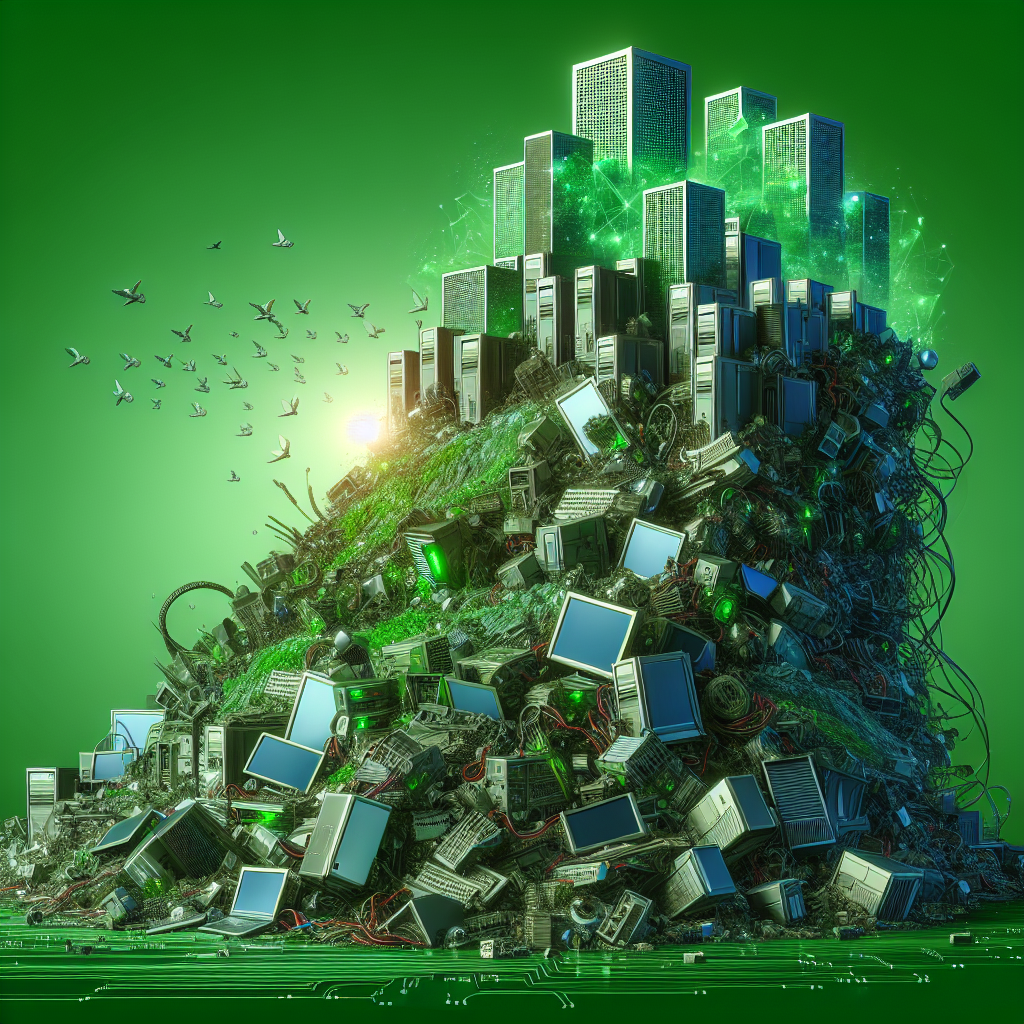Blog Ecobraz Eigre

How the evolution of quantum computing could increase the generation of technological waste
Quantum computing promises to revolutionize processing power, but its advancement could intensify the generation of technological waste. Explore how the development of new devices and infrastructures, as well as the disposal of traditional equipment, impact the environment.
What is quantum computing?
Quantum computing is an emerging technology that uses principles of quantum mechanics to process information exponentially faster than conventional computers. This opens the door to advanced solutions in cryptography, molecular simulation and the optimization of complex systems.
Impact on the increase in technological waste
Despite the benefits of quantum computing, its development brings environmental challenges. The constant manufacture and updating of quantum components, which are often fragile and highly complex, can generate large volumes of specialized electronic waste. In addition, as these devices replace classical systems, there is a considerable increase in the disposal of outdated equipment.
Necessary infrastructure and associated disposal
Quantum computers require specific infrastructures, such as extremely advanced cooling systems and shielding against interference. These structures require rare materials and specialized disposal, contributing to the growth of technological waste. Improper handling of this waste can cause environmental contamination and public health problems.
Materials and components in quantum computing
Quantum components often use precious metals, semiconductors and toxic chemicals. The inappropriate extraction and disposal of these materials intensifies the pressure on natural resources and generates pollution. In addition, the limited lifespan of these components encourages the constant generation of waste.
Challenges for sustainable waste management
Managing quantum computing waste involves challenges such as the lack of specific protocols for quantum equipment and the complexity in recycling the materials used. The absence of robust initiatives to recycle and reuse these components can increase the negative environmental impact.
Possible solutions to mitigate environmental impacts
To reduce the effects of quantum advancement on the generation of technological waste, it is essential to develop advanced recycling technologies, specific regulatory policies and encourage the sustainable design of devices. Collaboration between scientists, governments and technical sectors is key to creating a more responsible technological life cycle.
Conclusion
Quantum computing is on the verge of transforming technology and science, but its progress must be accompanied by a conscious approach to the generation and management of technological waste. Only with sustainable strategies will it be possible to fully enjoy the benefits of this revolution without compromising the environment.

Deixe um comentário
O seu endereço de e-mail não será publicado. Campos obrigatórios são marcados com *